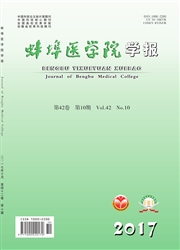

 中文摘要:
中文摘要:
目的:了解安徽省农村卫生保健网网底医务人员现状,为进一步提高农村卫生室服务能力提供依据。方珐:按分层抽样原则从皖北、皖中、皖南地区,按经济好、中、差抽取农村卫生室的医务人员,采用自编制调查表,调查其基本状况、教育培训状况、工作满意度、工作时间分布及基础知识测试。结果:村卫生室医疗人员年龄平均为41.54岁,男性占80.69%,高中及以上文化程度占68.23%,平均村卫生室工作年限13.94年;87.59%的人员接受过正规教育,对现有培训措施及成效评价较好,但在培训过程中也存在若干问题;对目前工作、收入、工作条件的满意度均评价为一般;预防免疫等公共卫生服务项目开展较少;基础知识测试及格率皖北为36.9%、皖中为40.5%、皖南为53.8%。结论:安徽省农村医务人员医疗技能不高,人员结构不合理,其职能不明确,应依靠完善的培训机制和政府有力的投入给予保障。
 英文摘要:
英文摘要:
Objective:To understand the status of medical staff on primary rural health care in Anhui province, and provide the basic reason for improving service capability of rural clinics. Methods : Medical staff was selected according to different economical levels from rural clinics which lied in southern, middle and northern in Anhui province, and the conditions of status, education, satisfaction, working time, and basic knowledge were surveyed using self-questionnaire. Results : The average age of medical staff was 41.54, the ratio of male was 80.69 %, the ratio of senior high school education was 68.23 %, the average working time in rural clinics was 13.94 years ;87.59 % medical staff were accepted medical education, and given better reputation, but there were several problems during training; the medical staff had general satisfaction on the condition of work and salary ;the ratio of spending on public health services time was little, such as preventive immunity;the pass ratios of basic knowledge test were 36.9% ,40.5% and 53.8% in northern, middle, and southern in Anhui province respectively. Conclusions:The medical level of the medical staff in rural clinics should be improved, and their age structures should be better arranged, the roles of the rural clinics should be clear, which need perfect training policies and large goverument investment.
 同期刊论文项目
同期刊论文项目
 同项目期刊论文
同项目期刊论文
 期刊信息
期刊信息
